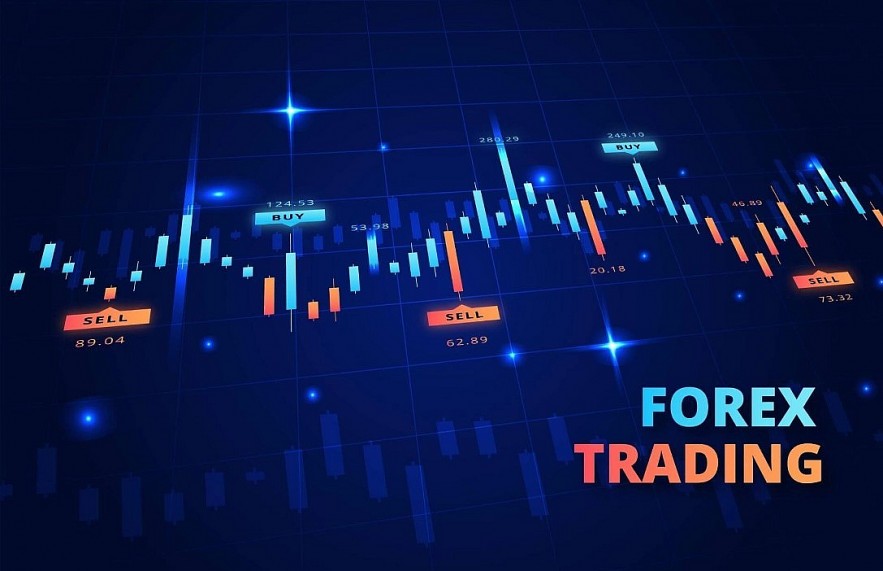 |
| Vietnam’s Forex Market |
During heightened global economic uncertainties, price upturn likely occurs in response to supply shocks. Global economic uncertainties strongly impact exchange rate adjustments through capital flows. In simple words, uncertainties contribute to negative global trade and market fluctuations.
But the Vietnamese forex market has shown resilience despite the ongoing economic uncertainties. The economy recorded an 8.02% growth to mark Asia’s fastest economic growth pace in 2022.
Meanwhile, Vietnam’s gross domestic product (GDP) growth rate outperformed the 6%-6.5% government target. The higher-than-expected 5.92% economic expansion aided the GDP rise during the 2022 final quarter. In the meantime, the construction and industrial sectors rose by 7.78%, the agricultural industry advanced by 3.36%, and the services industry rose by 9.99%. The December consumer price index increased by 4.55%, retail sales increased by 19.8%, and exports rose to $371.85 billion by 10.6%.
Key Factors Contributing To Vietnam’s Forex Market Resilience
Governments can make broad changes to fiscal and monetary policy. The policies include lowering or raising interest rates that can hugely impact a day trader. For instance, they can raise currency to lift share prices and corporate profits temporarily but ultimately spikes interest rates and lowers value. Vietnam’s average inflation rate was 1.83% in 2021, 3.76% in 2022, and 3.92% in 2023. Factors resulting in the low inflation rate include overcapacity that constrains retailers from increasing product prices.
In general, Vietnam’s export was at about $9.55 billion after hitting an all-time high in August 2022 of about $34.92 billion. The country’s commercial relationship has advanced since the US lifted its ban against her in 1994 and renewed diplomatic relations the following year. The Vietnam government says that the FDI (Foreign Direct Investment), a key economic driver, increased to $22.4 billion by 13.5% in 2022. Nonetheless, the FDI pledges that showcase future inflows slowed to $27.72 billion by 11% in the year.
Role of the Central Bank in Stabilizing Vietnam’s Forex Market
Vietnam’s central bank takes more time to decide on new monetary policy rules for tightening the economy. Generally, the better-than-expected economic expansion performance has helped stabilize the forex market. The Vietnamese authority raised the benchmark borrowing rate by about 200 basis points to 6% in 2022. However, concerns have grown over the growth slowdown, resulting from potential debt default in the property industry.
Challenges Facing Vietnam’s Forex Market
Although the economic outlook has improved recently, uncertainties such as threats to financial stability and debt distress still confront the entire world economy. Economic uncertainty is now broad-based. Financial experts believe that the economy has slipped into a recession, while others say it is a high probability in 2023. Therefore, it has pushed the world economy timetable back, with many predicting longevity to 2024.
Prices have declined since last November but are still at a record high of 7.7%. Also, the persistent raises in home prices and mortgage rates have deterred buyers from the market, resulting in decreased builder and seller activity. The market is grappling with limited options for investors. Climate change, the ongoing war in Ukraine, and sanctions on Russia have crippled the world’s supply chain. Russia is a top oil supplier, while Ukraine supplies cereals to most parts of the European Union.
Future Outlook for Vietnam’s Forex Market
The IMF (International Monetary Fund) says the World Economic Outlook indicates that the global economy could slow in 2023 before rebounding in 2024. Overall, the outlook appears less gloomy than the October forecast and marks a possible turning point with inflation declining and growth bottoming out. The country targets a 4.5% inflation rate and a 6.5% GDP growth next year.
All in all, as enterprises scale down their equipment and production materials purchases, a fall in the import value might result in a future industrial output contraction. The Foreign Direct Investment revised the third quarter growth up from 13.67%. Above all, the stable monetary policy and manageable inflation rate position Vietnam’s forex market better.
GDP forecast to grow 3.8 percent this year
Vietnam’s economic growth in 2020 will reach 3.8 percent if there is no second wave of COVID-19 in the second half of the year and economic activities are being gradually resumed. The forecast was released by the Vietnam Institute for Economic and Policy Research in Hanoi on July 21 at the launch of its independent assessment of Vietnam’s macroeconomic performance.








